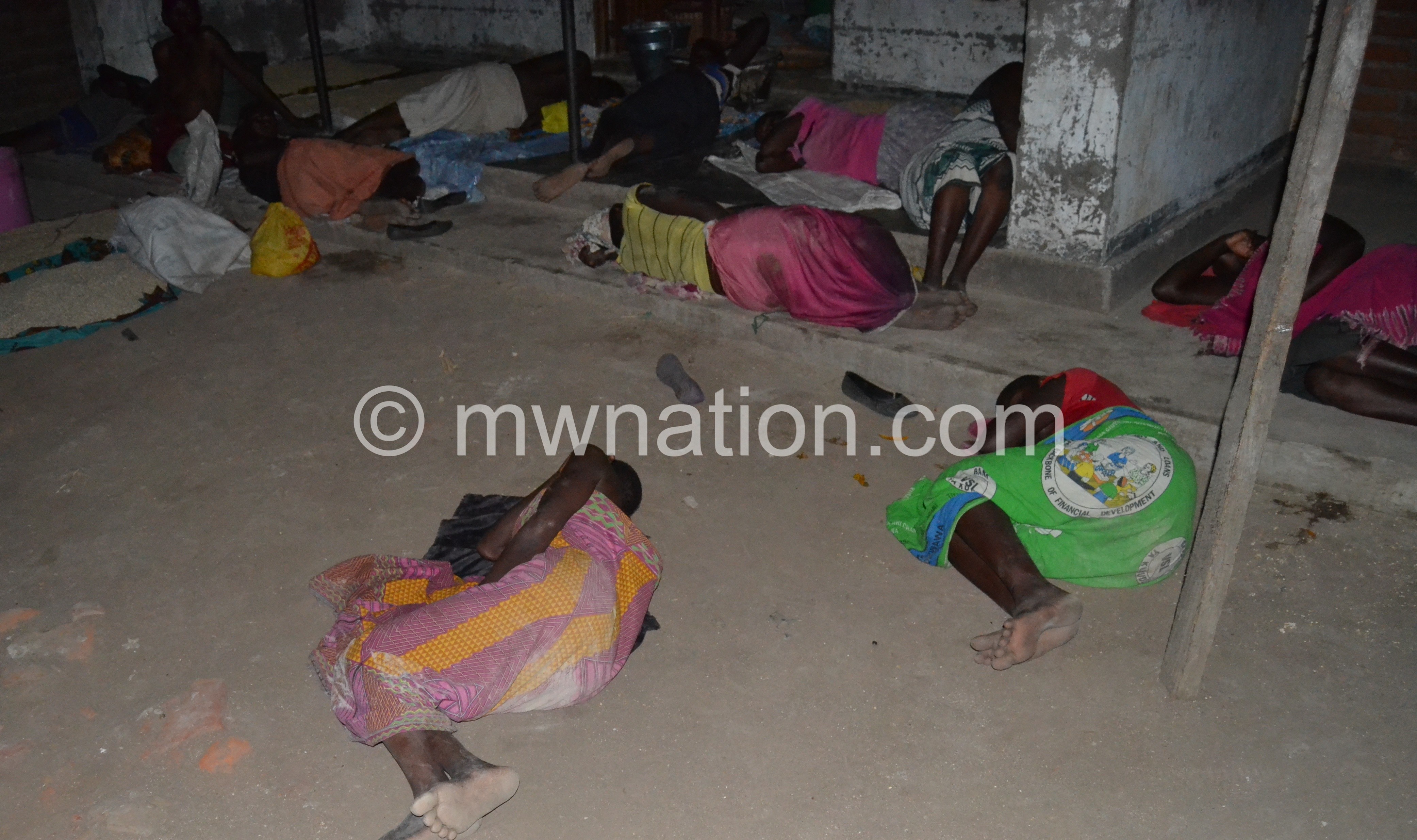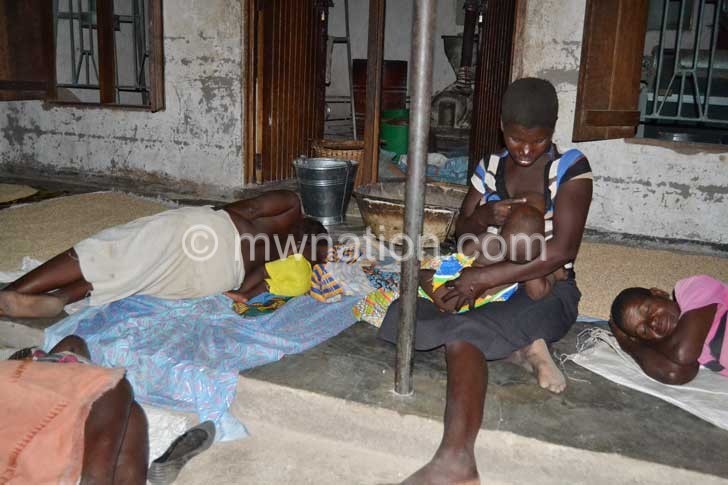How APM lost mojo
The year 2017 should have built strong momentum for the Peter Mutharika administration as the economy began to stabilise, but missteps resulted in what some say is a disappointing end.
Analysts Weekend Nation talked to this week say government’s struggles to deal with corruption, end power blackouts and how it handled the Electoral Reforms Bills spoiled the economic gains made in 2017.

But government has dismissed this notion, saying the country is on the right track to spur development.
Minister of Information and Communications Technology Nicholas Dausi insisted in an interview on Wednesday that Malawi was succeeding in entrenching good governance, reducing poverty and corruption.
The commentators say although the country has seen inflation falling to single digit, the kwacha holding its own and interest rates heading to record lows, the unprecedented power blackouts and the refusal by the ruling Democratic Progressive Party (DPP) to pass the Electoral Reforms Bills have spoiled the gains.
They say the gains from the macroeconomic stability have not trickled down to poor Malawians against the backdrop of unprecedented power outages threatening long-term economic recovery. y
y
Probably, these also contributed to the DPP’s loss in five by-elections held in October this year. DPP lost in two Parliamentary by-elections in Lilongwe and one in Nsanje to Malawi Congres Party (MCP), and won only a ward councillor’s seat in Mayani, Dedza.
Chancellor College-based political and social analyst Ernest Thindwa, in a telephone interview on Wednesday, said while the DPP administration has achieved macroeconomic stability in the past 12 months, lives of poor Malawians were not reflecting the positive change.
“This stability is mostly being enjoyed by the corporate world through the reduction of lending rates, but to the poor Malawian, life is still a struggle. Besides, the effects of the power blackouts on the economy will remain for years to come. We also expected government to decisively deal with corruption, but to the disappointment of many, those close to the ruling clique are being spared from prosecution,” he said.
Thindwa said one of the most disappointing developments was the shooting down of the Electoral Reforms Bills in Parliament. This would have improved the quality of political governance in the country,” he said.
According to Thindwa, the government was being selective in its reforms agenda.
He added: “The government did not want to see these reforms passed into law. Surprisingly, these were government Bills which should have had their backing. Trends show that those in Government only want to implement reforms that do not directly threaten their grip on power.”
In November, the ruling DPP, in alliance with some People’s Party (PP) and United Democratic Front (UDF) members of Parliament, shot down government Bills that would have changed the face of political governance in the country.
Among the Bills was one which proposed for a change to 50+1 for electing the President, from the current simple majority.
Malawi Economic Justice Network (Mejn) executive director Dalitso Kubalasa pointed out that the ceaseless financial mismanagement in the public sector, as mentioned in financial reports, were sucking out resources meant for poor Malawians.
In an e-mailed response on Wednesday, Kubalasa said: “Summed up in a few words, Malawi in 2017 still remained teetering on the edge, albeit with some mixed feelings.”
“The findings in the national audit reports of continued undermining of the ideals of financial probity and the public finance management laws need to stop, with the right precedent set by sanctioning the villains in line with the law. We need serious public finance management reforms that really result in strict adherence to accountability norms.”
He singled out the latest Auditor General’s reports of 2015/2016 financial year, which were made public in 2017, as underscoring and helping to comprehend the status quo and horror in public finance management.
He said this follows the recognition, among others, that the Auditor General’s opinion on 68 percent of the financial statements for the total budget and expenditure in the report is qualified; signifying a worrisome breakdown in the budget eco-system, which is supposed to be an epitome of Malawi changing the sour after-taste of an age-old narrative that it is “policy rich and implementation poor”.
In his summary e-mailed to us on Tuesday, Economics Association of Malawi (Ecama) president Chikumbutso Kalilombe lauded the decline of food and non-food inflation where headline inflation dropped to 7.7 percent in November.
He said: “Overall, the country recorded improved economic performance in the year 2017 compared to 2016. This outturn is largely on account of increased agricultural output, estimated to expand by 7.1 percent in 2017 from a contraction of 0.1 percent in the preceding year.
“But despite the overall improvement in the country’s economic performance in 2017, intermittent electricity power supply in the second half of the year remained the key challenge. This development weighed on the country’s economic performance in the second part of the 2017 and is likely to negatively impact on the first-quarter of 2018,” he said.
Kalilombe said the government needs to come up with long-run solutions to address the power outages that have affected the country for two successive years.
While most PP parliamentarians voted with the government side to defeat the Electoral Reforms Bills, its spokesperson Noah Chimpeni on Wednesday blamed the government for what he called “broken promises”.
“There were a lot of promises that this government made at the beginning of their term but disappointingly most of these are yet to be fulfilled. All we have seen is the President presiding over ground-breaking ceremonies in order to be seen as doing something. These could have even been done by ministers. Corruption is still high and people’s lives are still stuck in abject poverty. We can no longer make propositions for them to work on. We will just wait for election,” he said.
Chimpeni’s sentiments were shared by Malawi Congress Party (MCP) deputy secretary general Eisenhower Mkaka.
In a WhatsApp response on Wednesday, Mkaka said: “The year 2017 is another mixed bag. On the overall, the negatives again outweighed the positives and thus negatively affecting the general welfare of the people. We saw the opposition hold the Executive to account such as on the Zambia maize saga.
“Towards the close of the year, the opposition supported the people-driven Electoral Reforms Bills which were brought to the House by the government side and shot down by the same side. This epitomises Executive arrogance and the fact that the Executive is self-serving and does not have this nation’s interest at heart,” he said.
Mkaka also singled out how the government handled the procurement of generators to increase power generation and government’s reluctance to conclude the K577 billion alleged Cashgate which was reduced to K236 billion.
CCAP Livingstonia Synod Church and Society executive director Moses Mkandawire in a telephone interview also had no kind words for government’s failure to change the economic fortunes of poor Malawians.
“We can commend the government for the stability they have created from sound fiscal policies. But that is not enough; we want to see Malawians directly benefitting from the economic gains made. With regard to the fight against corruption we have not made any progress. It is mere rhetoric. And the shooting down by the government of their own Electoral Reforms Bills will be very costly to many parliamentarians in 2019,” he said.
But, in his response, Dausi said government had created a sound economic environment where banks had been advised to reduce lending rates to spur growth in both the formal and informal sectors.
He said: “The Reserve Bank of Malawi (RBM) has already communicated to commercial banks to reduce lending rates so that the common people can equally benefit from the reduction at the top. As for the drive against corruption, this is a continuous struggle. All stakeholders must work together but as a government, we have already shown resolve that even Cabinet ministers are not spared.”
Commenting on power generation problems, Dausi said there are efforts—both short and long-term—to solve the energy crisis in the country. The Electricity Generation Company (Egenco) can only produce 200 megawatts (MW) against the national demand of 350 MW a development that forced many firms to scale down production while others turned to the use of the more expensive diesel engines to power production lines.





